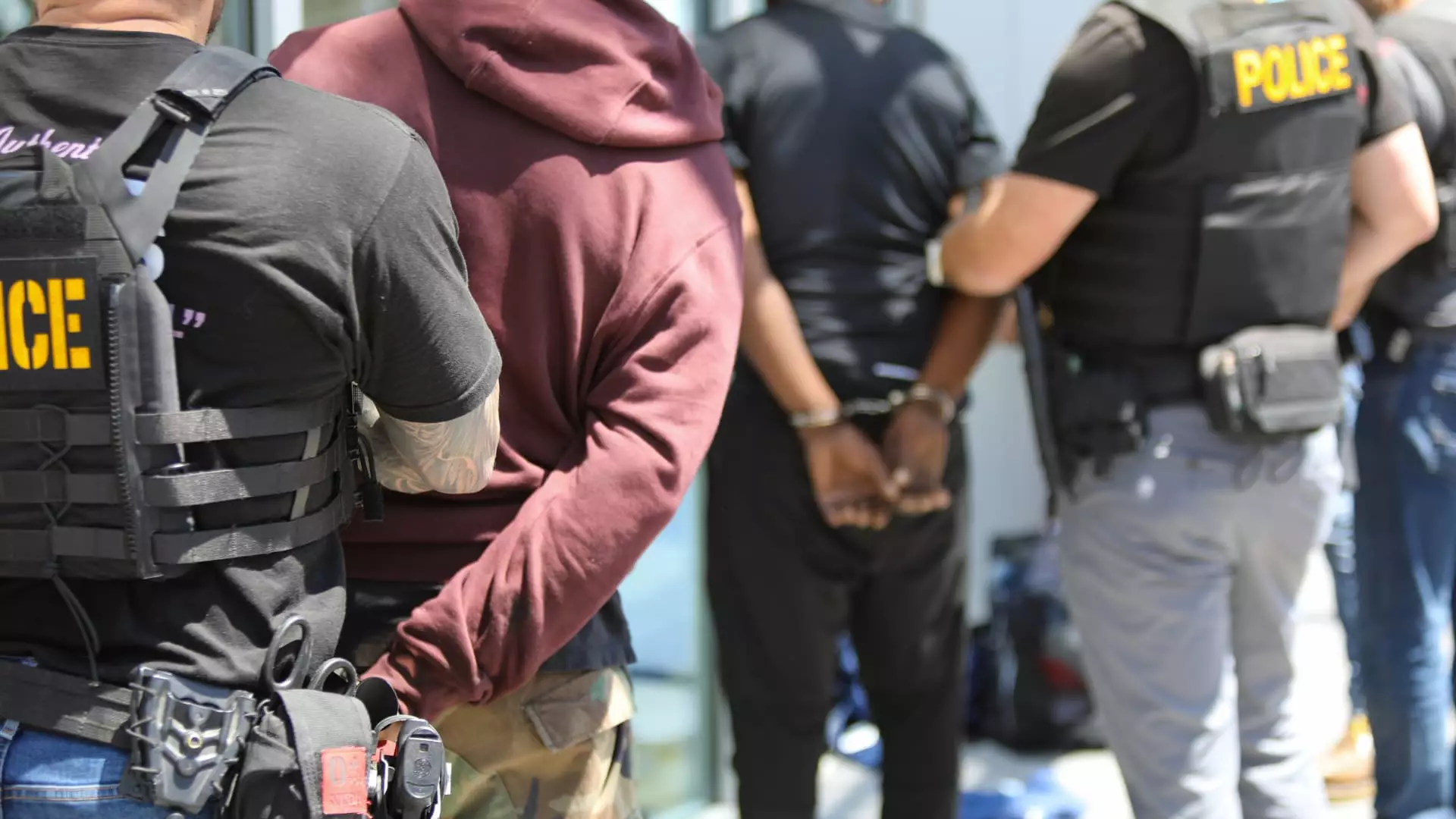In recent years, organized retail crime (ORC) has emerged as a pressing concern for retailers across the United States. The phenomenon, defined as groups of thieves collaborating in a methodical fashion to pilfer merchandise for resale, has seen unprecedented growth. According to the National Retail Federation (NRF), this year alone marked a staggering 93% increase in shoplifting incidents compared to 2019. The financial implications of this rampant theft are equally alarming, with reported dollar losses climbing 90% within the same timeframe. This crisis calls for urgent and robust responses; thankfully, a new nationwide crackdown may just be the proactive measure we need.
Coordinated Law Enforcement Efforts
In a landmark operation orchestrated by the Cook County regional organized crime task force, over 100 jurisdictions and 30 retailers came together to combat this menace. Spearheading the initiative, Cook County Sheriff Tom Dart emphasized the need for focused enforcement. He noted that when authorities actively prosecute and prioritize retail crime, the consequences become tangible deterrents for potential offenders. The mass arrest operation conducted last week, deemed the first of its kind, has already yielded hundreds of arrests in 28 states, demonstrating the potential benefits of coordinated law enforcement initiatives.
Such collaborative efforts are vital given the expansive nature of ORC, which often transcends state lines and involves intricate networks of thieves. This is not merely about random shoplifters; it’s a calculated business model that undermines local economies and jeopardizes the safety of communities. The comprehensive approach taken in this operation signals a necessary shift towards treating these incidents not as petty theft but as organized crime requiring strategic intervention.
Changing Legal Frameworks
Another critical aspect of this crackdown is the reevaluation of legal thresholds regarding retail theft. Cook County State’s Attorney Eileen O’Neill Burke has committed to a more aggressive prosecution strategy, seeking felony charges for theft exceeding a more reasonable threshold of $300. Previously, the bar was set much higher at $1,000, effectively emboldening many criminals who otherwise would prioritize risk over reward. Less stringent felony thresholds reflect an understanding that organized crime does not just rob stores; it robs communities of their safety, resulting in a ripple effect that can devastate local economies.
In light of these realities, the successful prosecution of 1,450 felony retail theft cases since December indicates a commitment to not only track down and prosecute offenders but also to send a strong message that crime does not pay. This approach resonates with those of us in the center-right political sphere, where law and order are paramount.
Retailers Joining the Fight
The unprecedented collaboration between law enforcement and major retailers underscores the seriousness of the crisis at hand. Notably, companies like Ulta Beauty, Home Depot, Walgreens, and Target have acknowledged the pressing threat that ORC poses, not just to their bottom lines but also to the shopping experience and overall community wellbeing. Ulta’s proactive participation across multiple states showcases an exemplary model of corporate responsibility—retailers must take ownership of their loss prevention strategies, understanding that collaboration with law enforcement amplifies their efforts.
Marty Maloney from Walgreens aptly pointed out that organized retail crime remains one of the most significant challenges currently facing the industry. His remarks highlight the essential role played by businesses in combating this issue; by pooling resources and sharing intelligence regarding theft incidents, both retailers and law enforcement can forge a united front.
Addressing Systemic Flaws
Certainly, while targeted operations like these provide immediate relief, they also expose deeper systemic flaws within our criminal justice system that require attention. Critics have long pointed to lenient punishments and insufficient enforcement as key enablers of retail crime. The historical lack of accountability for lower-level thefts has fostered an environment where crime can thrive. By addressing these systemic issues and redefining law enforcement priorities, we can foster a future where theft is not only combated vigorously but deterred proactively.
The coordinated crackdown on organized retail crime embodies a pivotal moment in our ongoing struggle against theft that has spiraled out of control. It is a clarion call for change that resonates with anyone who values community safety and economic vitality. The efforts and collaboration we’ve seen should inspire similar initiatives across the nation, confronting not just the symptoms but the very roots of organized crime. As we move forward, embracing the complexities of this crisis while seeking lasting solutions must remain at the forefront of our collective endeavors.

